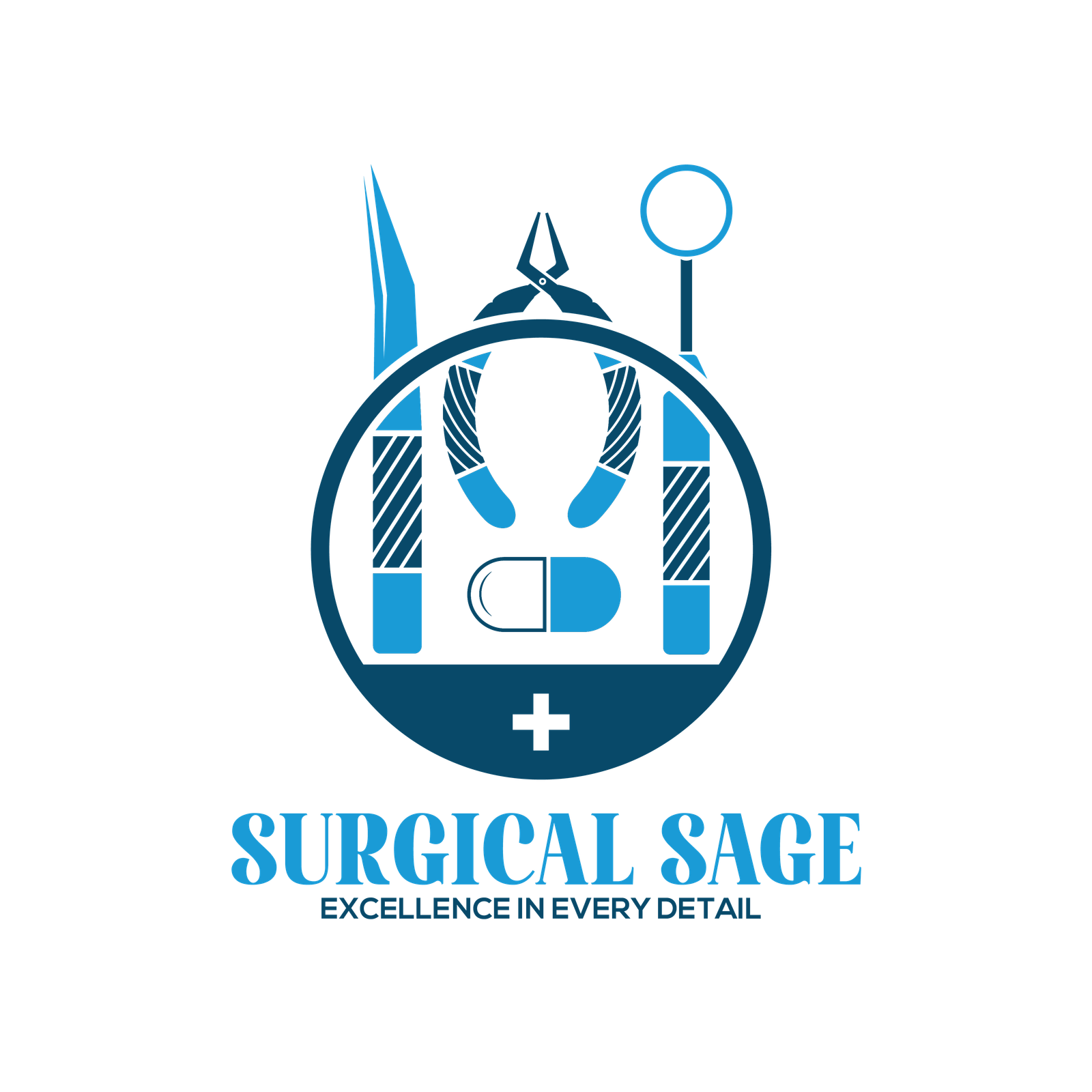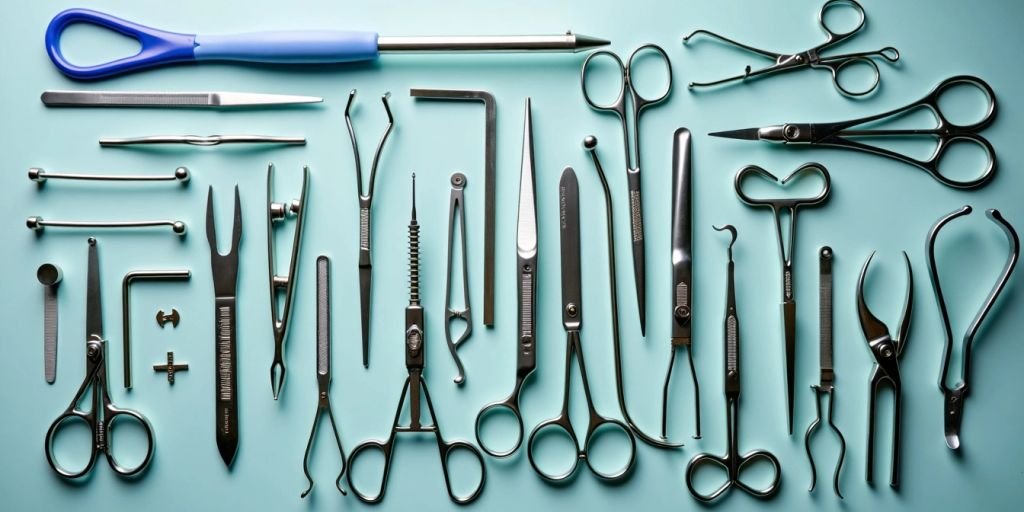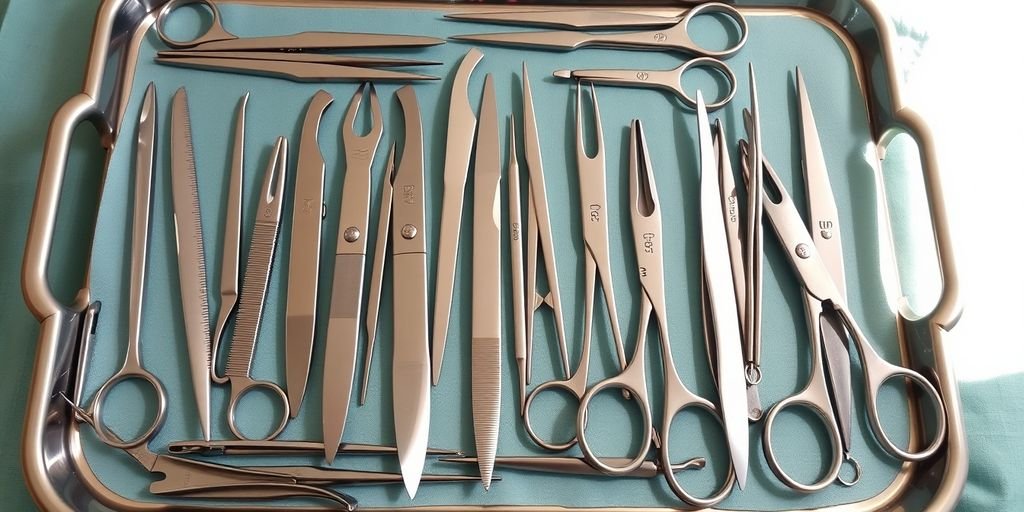Stainless steel is a top choice for making surgical instruments. It has many benefits that make it better than other materials. This article will explore why stainless steel is the best option for surgical tools.
Key Takeaways
- Stainless steel resists rust and corrosion, making it durable for surgical use.
- It is safe for the body and can be made without nickel to avoid allergies.
- Stainless steel is strong and can handle wear and tear well.
- It is easy to clean and sterilize, keeping surgical tools safe to use.
- Using stainless steel for surgical instruments is cost-effective for healthcare facilities.
Corrosion Resistance of Stainless Steel

Stainless steel is renowned for its corrosion resistance, making it an ideal material for surgical instruments. This resistance is primarily due to the presence of chromium, which forms a protective film on the surface of the steel. This film is nonporous and prevents rust and corrosion, even when the steel is scratched. The ability of stainless steel to resist corrosion is crucial in medical environments where exposure to blood, body fluids, and sterilization methods is common.
Biocompatibility and Safety

Hypoallergenic Properties
Stainless steel is generally considered hypoallergenic, making it a safe choice for most patients. However, some people may still have reactions to the nickel content. Nickel-free options like BioDur® 108 stainless steel are available to minimize these risks.
Nickel-Free Options
Nickel can be a concern in surgical instruments due to its potential to cause allergic reactions. BioDur® 108 stainless steel is a nickel-free option that ensures the integrity of surgical tools while reducing the risk of allergic reactions.
Minimizing Immune Reactions
Stainless steel is designed to be biocompatible, meaning it is less likely to cause immune reactions. This is crucial for surgical instruments that come into direct contact with body tissues. The material’s resistance to corrosion and wear further ensures its safety and reliability in medical settings.
Strength and Durability
Resistance to Wear and Tear
Stainless steel is known for its resistance to wear and tear. This makes it ideal for surgical instruments that need to withstand repeated use. The material’s hardness and tensile strength ensure that it remains effective even after many uses.
Self-Healing Properties
One of the unique features of stainless steel is its self-healing property. When scratched, the exposed chromium oxidizes and forms a new protective layer. This makes stainless steel particularly suitable for the rigorous demands of the medical field.
Comparison with Other Metals
Compared to other metals, stainless steel offers a balanced combination of strength, durability, and corrosion resistance. While titanium is also durable and non-rusting, stainless steel is more cost-effective and easier to maintain. This makes it a preferred choice for many healthcare facilities.
The self-healing property of stainless steel is a primary reason it is the material of choice for medical environments.
Ease of Sterilization
Stainless steel is a top choice for surgical instruments because it is easy to sterilize. This makes it a reliable material for maintaining hygiene in medical settings.
Cost-Effectiveness
Longevity of Instruments
Stainless steel surgical instruments are known for their long lifespan. They can withstand repeated use and sterilization without losing their effectiveness. This durability means that hospitals and clinics do not need to replace them frequently, saving money in the long run.
Lower Replacement Costs
Because stainless steel instruments last longer, the replacement costs are significantly lower compared to instruments made from other materials. This makes them a cost-effective choice for healthcare facilities.
Economic Benefits for Healthcare Facilities
Using stainless steel instruments can lead to substantial economic benefits for healthcare facilities. The initial investment may be higher, but the long-term savings are considerable. These savings can be redirected to other critical areas, improving overall patient care.
Stainless steel instruments offer a convenient, cost-effective, and efficient alternative to other materials, contributing to their rapid expansion and growing popularity in the healthcare industry.
Versatility in Surgical Applications
Range of Instruments Made from Stainless Steel
Stainless steel is used to make a wide variety of surgical instruments. These include scalpels, forceps, scissors, and retractors. Its versatility makes it a top choice for many different types of tools.
Suitability for Various Surgical Procedures
Stainless steel instruments are suitable for many surgical procedures. They are used in general surgery, orthopedic surgery, and even dental procedures. This wide range of use is due to their durability and ease of sterilization.
Customization and Adaptability
Stainless steel instruments can be customized to meet specific needs. This adaptability ensures that surgeons have the right tools for any procedure. The ability to tailor instruments enhances their effectiveness in the operating room.
Stainless steel instruments offer biocompatibility, sterilizability, and corrosion resistance critical for healthcare applications.
Technological Advancements
Innovations in Stainless Steel Alloys
Stainless steel alloys have seen significant improvements over the years. New alloys are being developed to enhance the strength and durability of surgical instruments. These innovations ensure that the tools remain sharp and effective for longer periods.
Ceramic Coatings for Enhanced Performance
Ceramic coatings are now being applied to stainless steel instruments. These coatings provide an extra layer of protection, making the instruments more resistant to wear and tear. Additionally, they help in reducing friction, which is crucial during delicate surgical procedures.
Future Trends in Surgical Instrument Materials
The future of surgical instruments looks promising with the advent of metal 3D printing. This technology allows for the creation of complex and customized instruments that were previously impossible to manufacture. Traditional surgical tools, commonly constructed from stainless steel and titanium, are exceptionally well-suited to metal 3D printing techniques.
The continuous advancements in materials and manufacturing techniques are paving the way for more efficient and reliable surgical instruments.
Conclusion
In conclusion, stainless steel stands out as the best material for surgical instruments due to its unique combination of strength, corrosion resistance, and ease of sterilization. The addition of chromium creates a protective layer that prevents rust, while elements like nickel and molybdenum enhance its durability and flexibility. Although other materials like titanium and tungsten carbide have their own advantages, stainless steel remains the most reliable and widely used option in the medical field. Its ability to maintain a clean and sterile surface, along with its self-healing properties, ensures that surgical instruments made from stainless steel can be used safely and effectively in various medical procedures.
Frequently Asked Questions
What makes stainless steel resistant to rust?
Stainless steel has chromium, which forms a thin layer of oxide on the surface. This layer stops rust and keeps the steel shiny and strong.
Are there any surgical instruments made without nickel?
Yes, some surgical tools are made without nickel because nickel can cause allergies or immune reactions in some patients.
Why is stainless steel preferred over other materials for surgical instruments?
Stainless steel is strong, doesn’t rust easily, and is easy to sterilize. This makes it perfect for surgical tools that need to be clean and durable.
What role does molybdenum play in stainless steel?
Molybdenum is added to stainless steel to make it even more resistant to rust and corrosion, making the instruments last longer.
Can stainless steel surgical instruments be customized?
Yes, stainless steel tools can be made in different shapes and sizes to fit various surgical needs and procedures.
How do ceramic coatings improve stainless steel instruments?
Ceramic coatings make the surface harder, more resistant to rust, and reduce reflections during surgery, which can help doctors see better.



